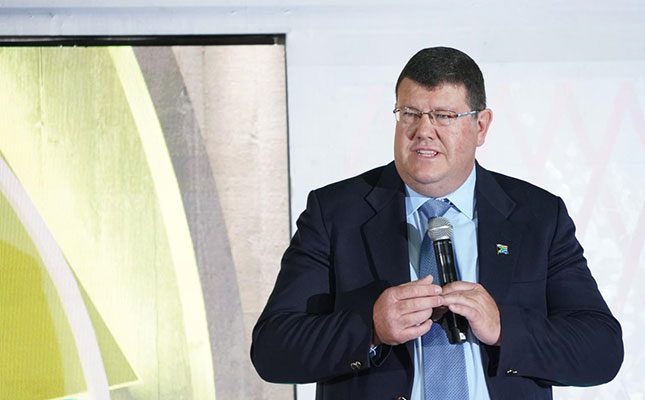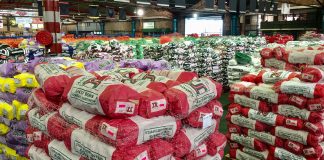
Photo: Magda du Toit
“As individuals and as a collective, we should address and improve all the factors that impact food security. We can’t look back in 10 years with regret because we failed to address today’s challenges. The time to act is now.”
According to him, if local industries are not protected, local people will not be able to get decent jobs and have an income to afford even the cheapest food.
“We call on government to reflect carefully on the potential long-term adverse effects of a short-term easing of food prices, especially when deciding on tariffs.”
He pointed out that South Africa had the highest unemployment rate in the world, but because labour costs were so high, labour-intensive industries struggled to compete internationally.
He said that Agri SA deeply empathised with the poverty situation in the country and was trying its best to grow agriculture to create opportunities for a larger labour force and stronger local economies.
“What we need to realise, however, is that there is a big difference between unemployment and the available labour force. Factors influencing this include training, effectiveness, productivity, and willingness to do the type of work that needs to be done. Unfortunately, South Africa has too many labour laws that are counterproductive when it comes to job creation, and this increasingly compels entrepreneurs and businesses to look at alternatives rather than employing people,” he said.
The rising cost of agricultural inputs remains a major concern, according to Minnaar. Added to that, the markets are uncertain, the after-effects of COVID-19 are still lingering, and the agriculture sector is also faced with constant new unknown events that cause large fluctuations in availability and consequently prices. He pointed out that this was making decisions regarding the timing of purchases and sales very difficult.
“Because the functioning of the free market keeps the system in balance, it remains extremely important to protect the free market and its fundamentals. When the free market is interfered with, it affects the balance, with many unforeseen consequences. Current government investigations into possibly interfering with food prices will have to be handled with great caution because the unforeseen consequences could be catastrophic,” Minnaar cautioned.
Due to large increases in the prices of electricity, fuel and food, as well as a rise in interest rates, consumers are under great pressure. “Of course, load-shedding has not only put a tremendous damper on the economy, but also on the consumer,” Minnaar said.
He voiced his concern about the continuous decay of infrastructure, pointing out that this was going to have a significant effect on food security.
“South African ports handle a third of the cargo containers compared with other ports with the same equipment. The decay of our ports, railways, roads and other infrastructure has a huge impact not only on our ability to export and obtain foreign exchange, but also on our ability to be competitive and produce food locally. Agri SA is working hard with other role players to stop and reverse the decay so that our economy can regain strength and grow.”
Minnaar remarked that although availability and affordability of energy was a major problem around the world, it was more severe in South Africa. “We should, however, perceive these challenges as the catalyst to put South Africa at the forefront of renewable energy and a growing, inclusive economy.”
In this regard, he said that Agri SA and other agricultural role-players had identified various short-, medium- and long-term solutions and shared these to ensure affordable and reliable electricity supply.
“Several of these plans are already in place and we are already seeing major changes. The private sector has already added about 3GW of energy generation capacity in the past few years. That is equivalent to three stages of load-shedding.”
Join the Farmer’s Weekly News WhatsApp Group for daily news updates.











